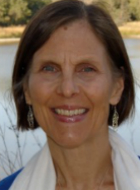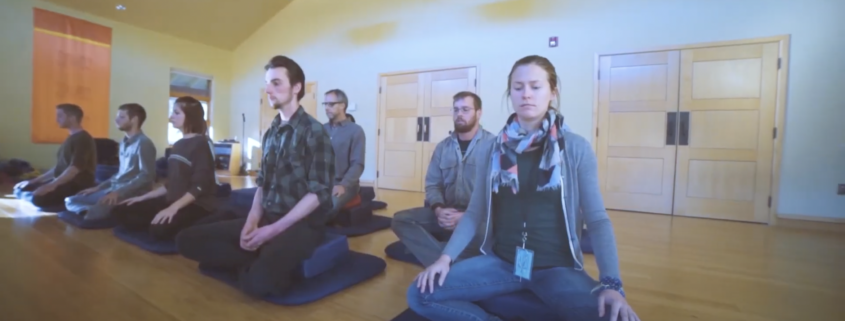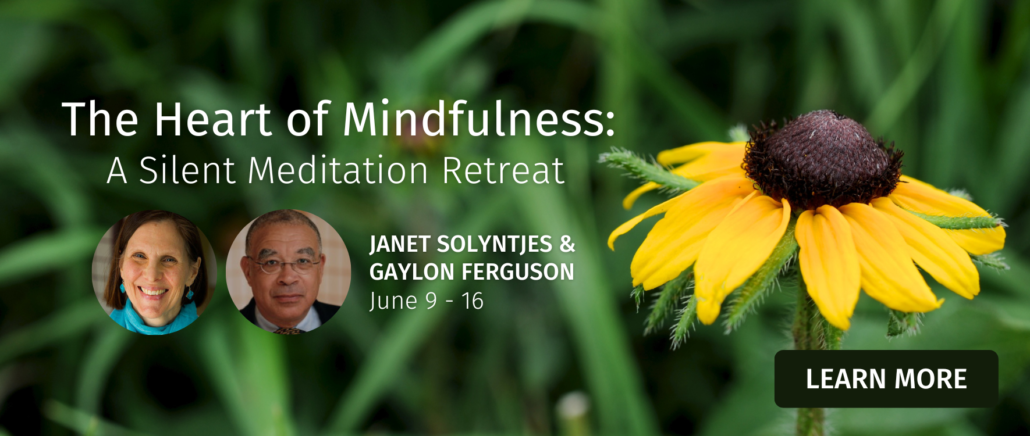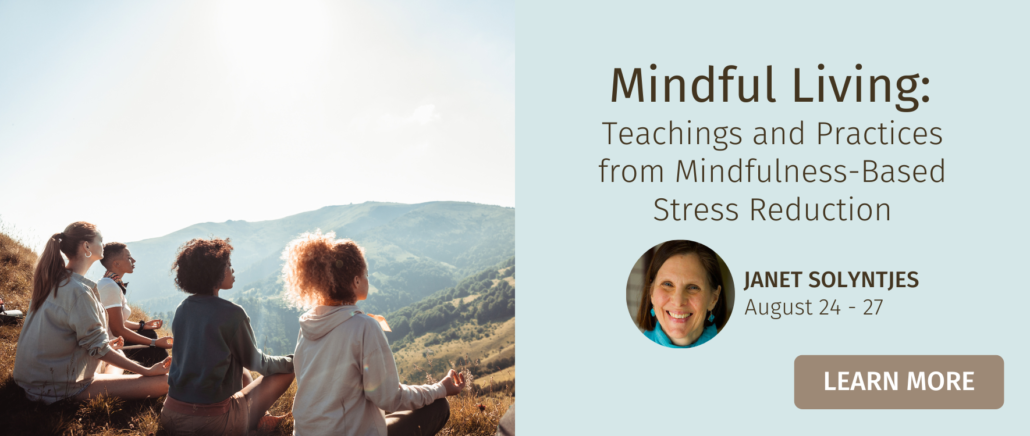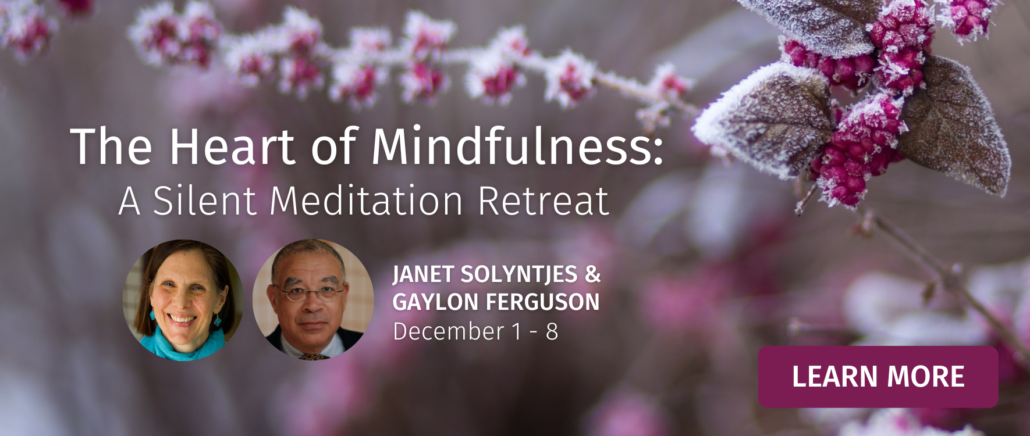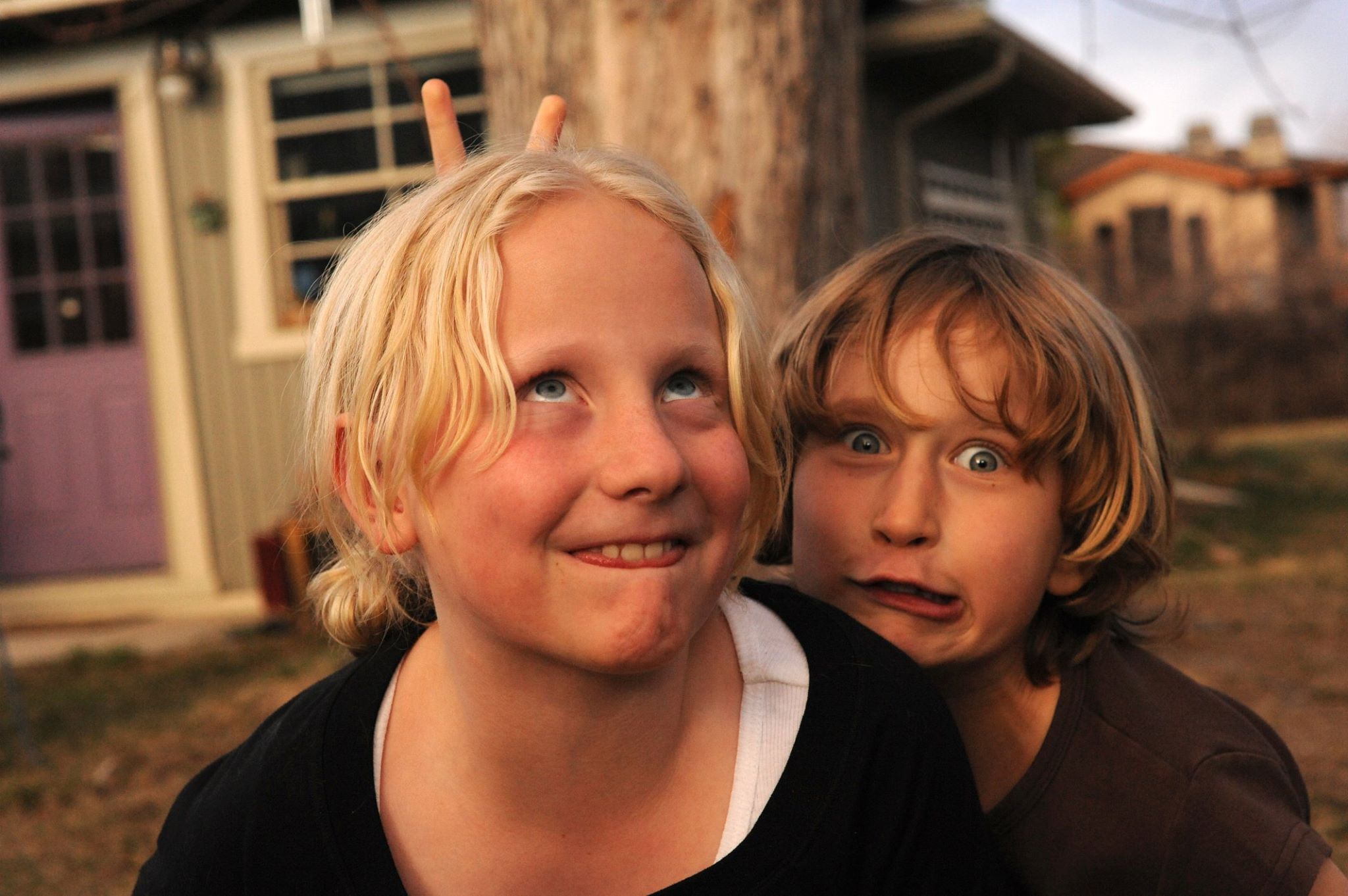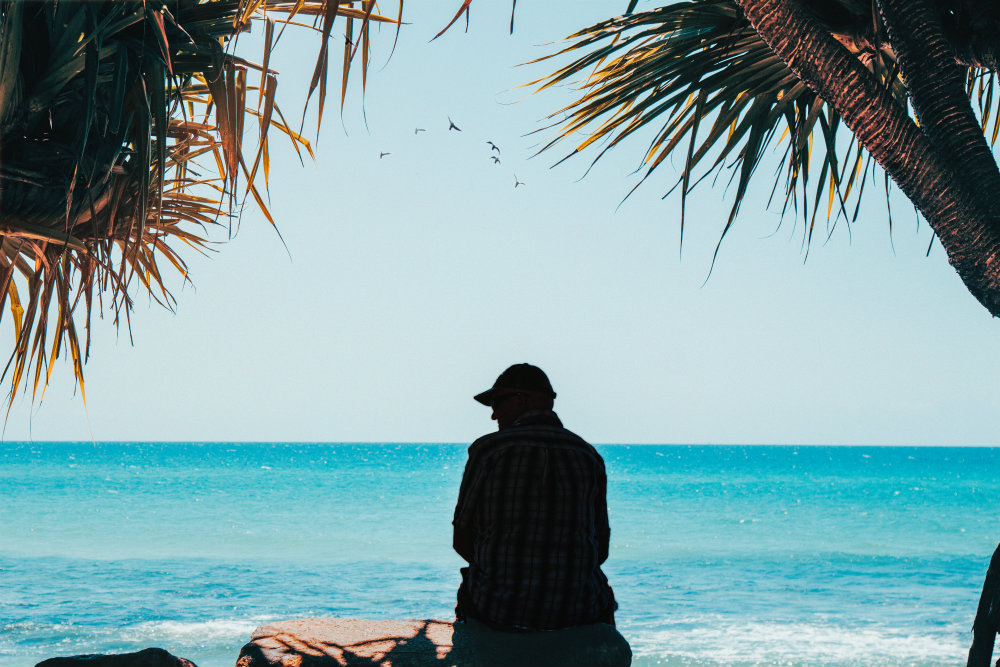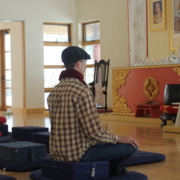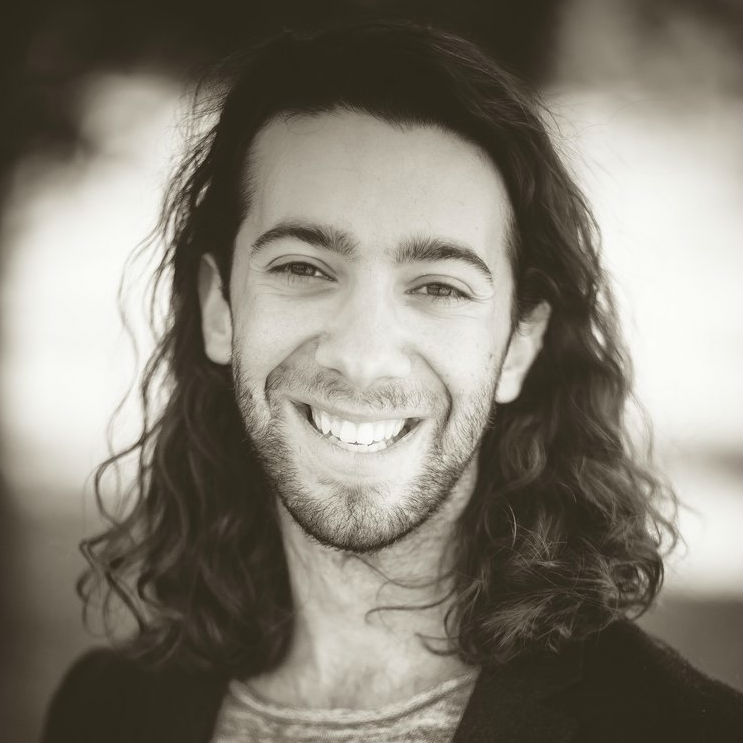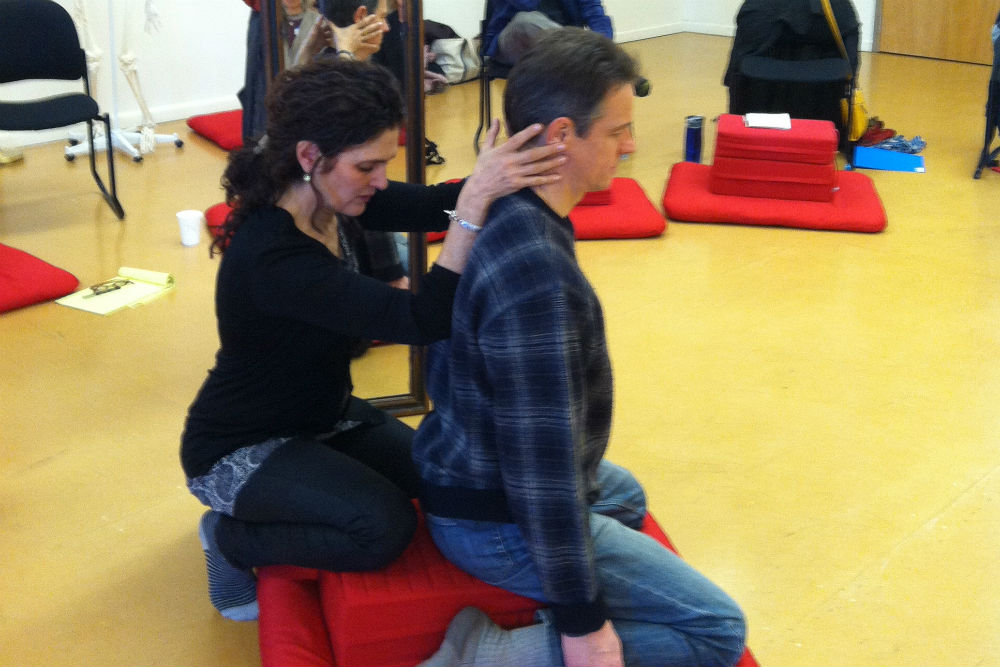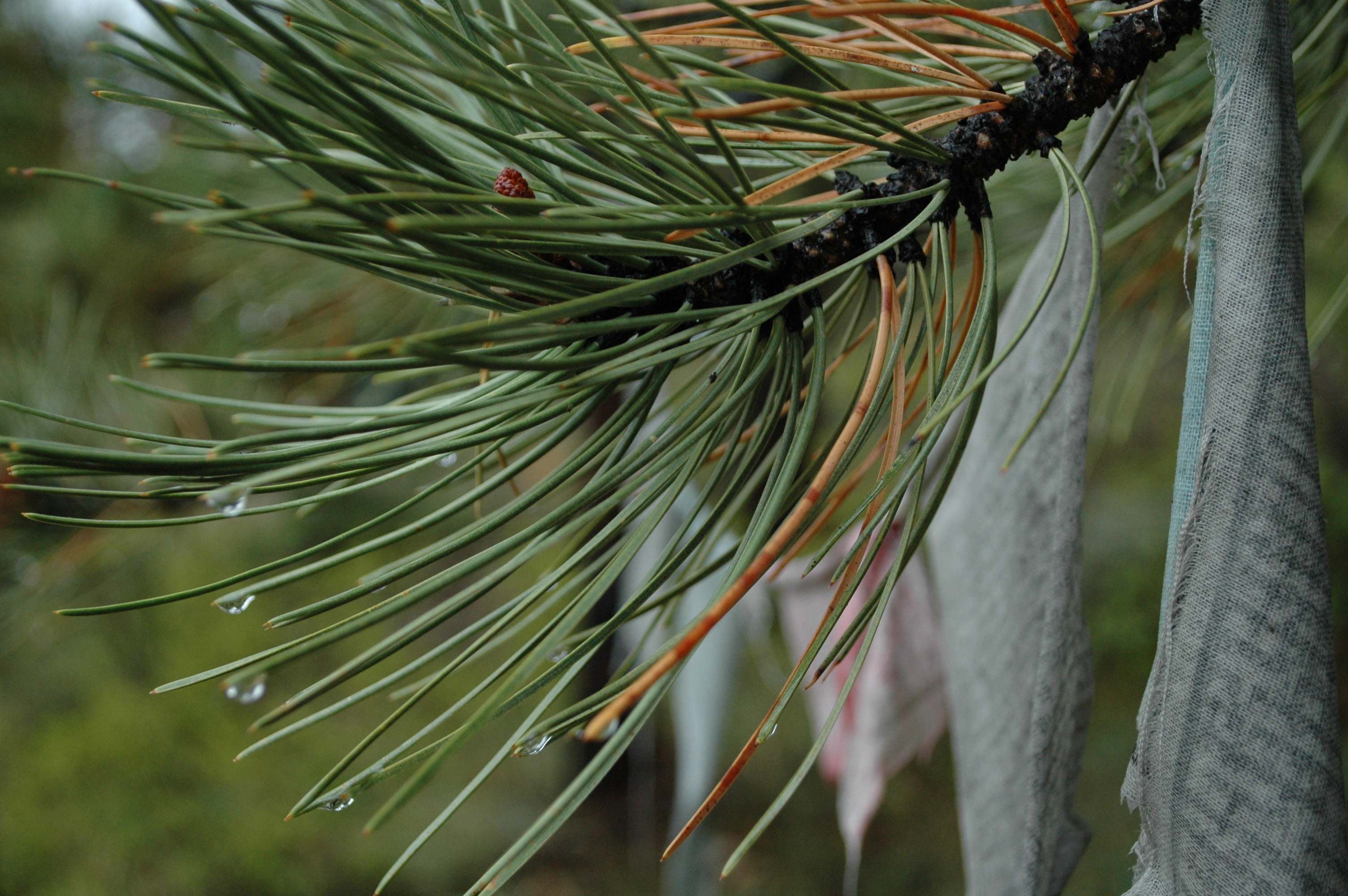On Silent Group Meditation Retreats: 10 things I’ve learned along the way
by Janet Solyntjes
In 1987 I participated in my first silent group meditation retreat. It was a month-long program held at what is now called Drala Mountain Center (DMC). A few friends suggested that it was the next thing for me to do on my meditative journey. For me, going on retreat was an abstract concept, a box to check off on my way to something more important. Perhaps I had fallen under the spell of spiritual materialism – seeking higher states, an idealized state of peace, and wanting some form of credential from engaging in what seemed like a very long time to spend doing nothing. Would a month of intensive practice make me a “better” spiritual person?
In the days before the retreat began, I sensed my fear and anxiety about participating in the rigors of long disciplined days over a four-week period. I wasn’t sure what triggered the fear, but didn’t worry much about it. The arrival day came and I got into my car to head up the mountain to DMC with map in hand (think 1986) to help navigate the many unmarked dirt roads to a place I had never been before.
As I approached DMC the map indicated a left turn, but the map didn’t know that I had miscalculated the mileage. I turned left, had obviously taken a wrong turn, and thus panicked. The immediate sense of panic, buoyed by the preceding days of fear and anxiety, sent me fleeing back down the mountain where I found refuge with a friend. Two days passed. The “sirens of retreat” haunted me with their cries to return, and I drove back up the mountain to DMC. 28 days later—at the conclusion of the retreat—I decided to stay on and join the staff of DMC.
Fast forward 35 years. I have now participated in many silent retreats and have led them for over 22 years. Retreat has become an essential ingredient in my recipe for sane living.
Here are 10 things I have learned about silent group meditation retreats:
- You never really know what to expect. Nothing is completely predictable.
- Paradoxically, the daily schedule is fairly predictable and is perhaps the only constant. The daily schedule becomes the container for all things to “cook” under the fire of practice.
- You will get bored and boredom is a profound teacher.
- The dharma, or wisdom of how things are, can be heard in a way that it is not heard in daily life. Words penetrate deeply during retreat.
- Nature becomes the gateway into a magical world of self-existing sacredness; nature is a guide and teacher of the retreat.
- You can get to know people simply by sitting in silence with them. They may even become a lifelong friend.
- The body, yours and everyone else’s, will be uncomfortable – not always, but it’s an inescapable part of the path of intensive meditation practice. As one wise Zen teacher said at the end of a day of group meditation, “Body hurt?” That was all he had to say in his dharma talk.
- Daily nourishment will take on a new meaning. On that note, food will be an interesting form of entertainment; whether you find it fantastic or disappointing, it becomes a strong reference point for anticipatory pleasure.
- You will know what you didn’t know and remember what you forgot. What do you do with the insight gained in retreat? Nothing in particular. Let it come; let it go.
- You will miss home and want to stay in retreat forever – both at the same time – which is hard to describe in words.
These are merely my personal reflections. If you are drawn to retreat, if the “sirens” are calling you, then why not give yourself the opportunity to participate in one? Do you feel drawn to a deep dive, an indescribable immersion into the only time you have to live, and the only home you really have – with this body, this mind, this heart, now?
Join Janet for a retreat in 2023
About the Author: Janet Solyntjes
